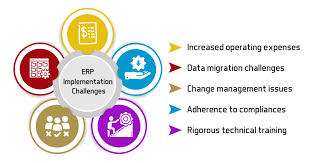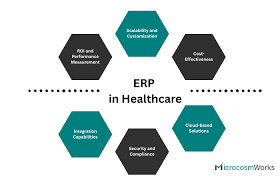The education sector has become increasingly complex, requiring institutions to adopt advanced tools that simplify administration, improve planning, and enhance accountability. ERP in Education: Tracking, Planning, Transparency is no longer just a trend—it is a necessity. By integrating ERP (Enterprise Resource Planning) solutions, schools, universities, and training centers can achieve greater efficiency, transparency, and cost control.
What is ERP in Education?
Enterprise Resource Planning (ERP) in education refers to a centralized digital system that manages academic and administrative processes under one platform. It connects departments such as admissions, finance, HR, academic planning, examinations, and student services, ensuring data flows seamlessly across the institution.
Why Tracking, Planning, and Transparency Matter in Education
1. Accurate Tracking of Resources and Students
An education ERP system provides real-time tracking of student progress, attendance, finances, and institutional resources. From tracking library books to classroom schedules, everything becomes more organized and measurable.
2. Smarter Planning for Academic Success
Planning is a critical part of running educational institutions. ERP platforms allow administrators to forecast budgets, schedule faculty assignments, and plan curricula more effectively, ensuring that academic goals are met without resource waste.
3. Transparency for Students, Parents, and Staff
Transparency builds trust. With ERP systems, students and parents gain easy access to grades, attendance, and fee status, while faculty can transparently monitor performance and communicate effectively. This openness reduces disputes and enhances satisfaction.
Benefits of ERP in Education
Enhanced Efficiency
Automating repetitive tasks like admissions, fee collection, and exam scheduling saves time and reduces errors.
Improved Decision-Making
ERP platforms provide data-driven insights, helping management teams make informed decisions regarding budgets, staffing, and student outcomes.
Compliance and Accountability
With built-in reporting tools, institutions can comply with regulations and maintain full accountability to stakeholders.
Examples of ERP in Education
- Tracking: Monitoring student attendance, grades, and resource usage.
- Planning: Scheduling classes, exams, and budget allocation.
- Transparency: Real-time dashboards for students, parents, and administrators.
These features are why ERP is becoming an essential investment for educational institutions worldwide.
Best ERP Solutions for Educational Institutions
Some of the most widely used ERP platforms in education include PowerSchool ERP, SAP for Education, and Oracle PeopleSoft. Each system provides powerful modules for managing admissions, HR, finance, and academics.
For specialized needs, institutions may even choose customized ERP implementations to better match their operations.
Why Partner with Singleclic?
Singleclic is a leading IT solutions provider since 2013, specializing in ERP, CRM, Low-Code platforms, cybersecurity, hosting, and digital transformation. With expertise across diverse industries, including education, Singleclic helps institutions implement ERP systems that bring measurable results.
👉 Learn more about industry-specific ERP strategies in our detailed guide on Industry-Focused ERP Implementation.
Conclusion
The adoption of ERP in Education: Tracking, Planning, Transparency is transforming how schools and universities operate. By leveraging ERP technology, institutions achieve operational efficiency, accurate planning, and transparent communication with all stakeholders.
For educational leaders, ERP is no longer optional—it is the foundation for sustainable growth and improved student outcomes.






